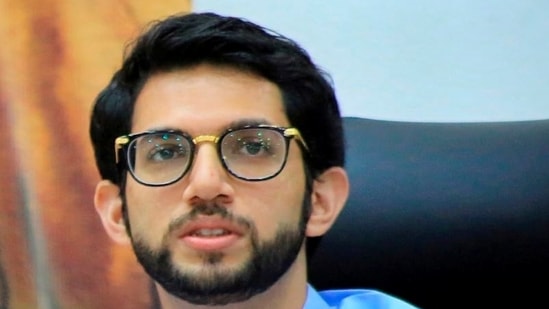‘Tourism on road to recovery in Maharashtra’, says Aaditya Thackeray
Aaditya Thackeray said the tourism industry would act as a sponge to absorb the highest number of jobs and generate revenue for states in the post-Covid world.
Maharashtra tourism and environment minister Aaditya Thackeray on Thursday expressed confidence that the tourism industry in the state, which was deeply impacted by the Covid-19 pandemic, will register a V-shaped recovery in coming months amid a steady drop in infections.

The minister, who was speaking at the 3rd edition of the Hindustan Times Tourism Conclave in New Delhi, said the tourism industry would act as a sponge to absorb the highest number of jobs and generate revenue for states in the post-Covid world.
“I am really optimistic about the tourism sector. In those areas where Covid cases are low, we saw this concept of ‘revenge tourism’ because people want to step out and travel to places they have not gone to. It may be isolated villas, or staycation or boating. I am highly optimistic and see a V-shaped recovery for this sector in the coming few months,” he said. “In the post-Covid world, this sector will be our sponge industry which will absorb the highest number of employment growth, highest revenue for the state, and it will have a ripple effect on the country’s economy,” he added.
The state tourism minister also said there has been a change in the pattern of tourists since the onset of Covid-19. People have turned to forests, farms, open areas and isolated properties instead of the usual tourist spots, he said.
“The two-three day vacations have changed to three-four day vacations within the city. People book hotels and stay there. Another trend that we have seen in Karjat, Mahabaleshwar, Matheran and even in Konkan is that people are visiting these areas for five to six weeks and during their stay here, they are working from home. The forest sector is picking up and people want to go into the wild and explore. Caravan tourism has picked up,” he said.
“Agritourism is doing really well in Maharashtra as we have seen in Tuscany. Wineries in Nashik, strawberry farms in Mahabaleshwar, mango farms in Konkan, just staying on a farm is an experience because they are safe and being in nature, as opposed to being in a crowd in a hotel. The Agritourism concept is catching on like wildfire. Wherever we have space and where farmers can expand their homes, agritourism is developing,” he added.
The minister described the last one-and-a-half-years of Covid-19 pandemic as a time for reflection and reformation for his department, which came up with several policies and also eased processes of granting clearances.
Thackeray acknowledged that the Maharashtra government has been slow in relaxing Covid-19 restrictions but said it will continue to go forward cautiously.
“We are one of the few sub-national governments that have been painfully slow and staggered, and we will continue to be so. For us, healthcare is a priority. We do not want people to visit hospitals but we want them to safely visit tourist spots. We have been hard on the double-vaccination protocol, masking and the overall reopening. We will cautiously follow this,” he said.
The minister also spoke about the environment and climate crisis mitigation, and adaptation measures, saying a combined effort by states will help India lead the way.
Making a pitch for sustainable development, Thackeray said: “Sustainable development is needed today. The development where we cut trees for roads, highways or trains is having an impact on climate. We need development that will lead to climate crisis mitigation or adaptation. Only Maharashtra or Delhi or Tamil Nadu doing something will leave us in isolation. We need to meet and ideate to adopt what has worked elsewhere. This will have a huge impact and India can lead the world.”
Recently, Thackeray had written to environment ministers of other states on the “climate emergency” that the world is facing. “Just like Covid has hit us without any barriers, the climate crisis too will hit all the countries without barriers. The greatest inequality of the climate crisis is that it hits the worst to the ones who are least responsible for it. Landslides, rising sea levels, drought, famines, unseasonal rainfall… we need to think about these issues when we think about India,” he said.






